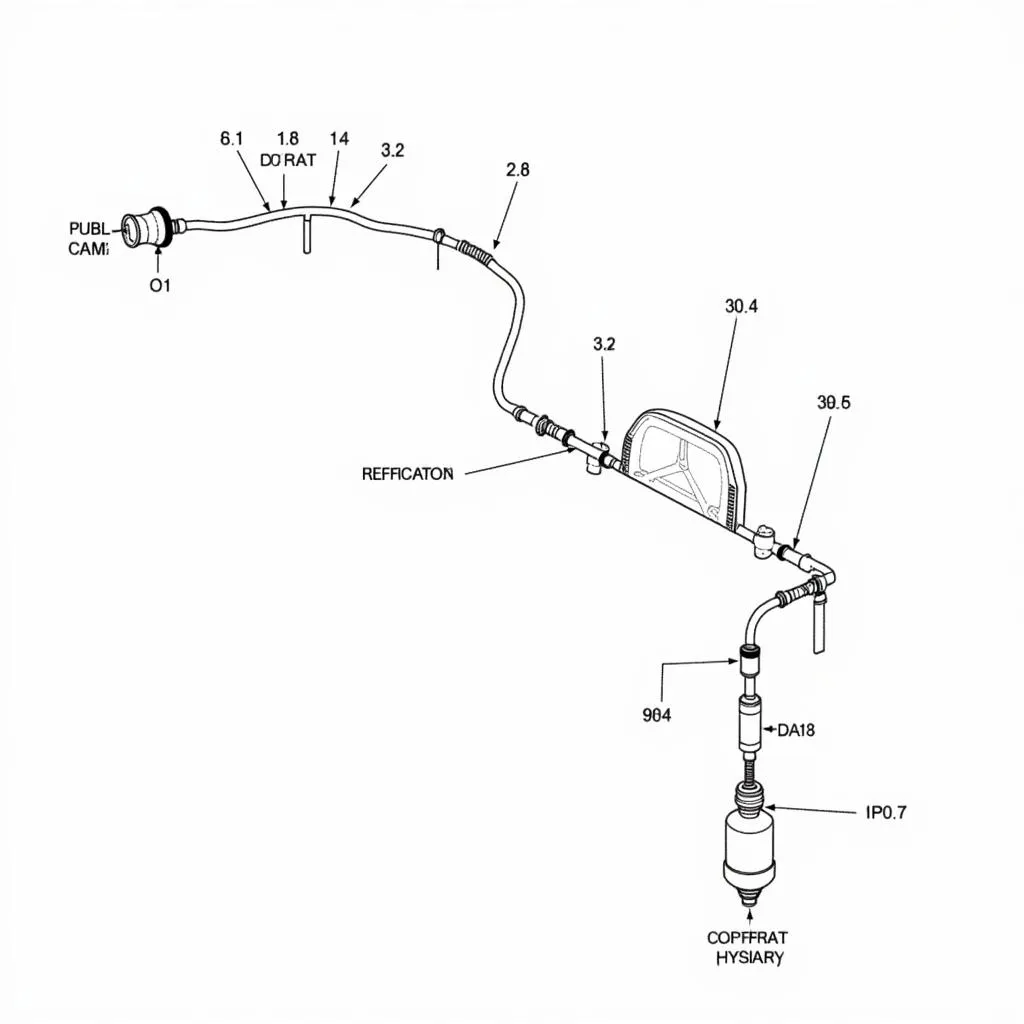Imagine cruising down the highway on a sweltering summer day when suddenly, your car’s air conditioning decides to take a vacation. Don’t sweat it! Understanding the ins and outs of air conditioning repair for cars can save you from discomfort and unexpected breakdowns.
Understanding Your Car’s AC System
Before diving into repairs, it’s helpful to understand the basic components of your car’s AC system. These typically include:
- Compressor: This is the heart of the system, compressing and circulating refrigerant.
- Condenser: Located at the front of your vehicle, it cools the refrigerant and converts it from a gas to a liquid.
- Evaporator: Positioned inside the dashboard, it converts the liquid refrigerant back into a gas, absorbing heat from the cabin.
- Receiver/Drier: This component stores and filters the refrigerant, removing moisture that can damage the system.
Common Air Conditioning Problems in Cars
Several issues can arise with your car’s AC system, leading to reduced cooling performance or complete failure. Some common culprits include:
- Refrigerant Leaks: Over time, refrigerant can leak from hoses, connections, or seals.
- Electrical Issues: Faulty wiring, blown fuses, or a malfunctioning AC control module can disrupt the system’s operation.
- Compressor Failure: The compressor can fail due to wear and tear, lack of lubrication, or electrical problems.
- Clogged Condenser: Debris, dirt, and bugs can accumulate on the condenser, hindering its ability to cool the refrigerant.
Diagnosing the Issue
When your car’s AC isn’t working properly, diagnosing the problem accurately is crucial for effective repair.
“Many car owners try to recharge their AC system with refrigerant as a first step,” says master mechanic John Smith of Smith’s Auto Repair. “While this might seem like a quick fix, it’s essential to find and address the root cause of the problem, which could be a leak or a more serious mechanical issue.”
Air Conditioning Repair for Cars: What to Expect
The repair process for car AC systems can vary depending on the specific issue. Here’s a general overview of what you can anticipate:
- Inspection and Diagnosis: A qualified mechanic will inspect your AC system visually and use specialized tools to identify the problem.
- Repair or Replacement: Based on the diagnosis, the mechanic will recommend repairing or replacing the faulty components.
- Refrigerant Evacuation and Recharge: Once repairs are complete, the system needs to be evacuated to remove any remaining old refrigerant and moisture. Fresh refrigerant is then added to the correct level.
- System Testing: After the recharge, the mechanic will run tests to ensure the AC system is functioning correctly and delivering cold air.
Finding a Reliable Air Conditioning Repair Shop
When it’s time for air conditioning repair for a car, choosing a reputable and experienced repair shop is essential. Look for shops specializing in air conditioning for cars repair near me that have certified technicians and a proven track record.
“Don’t be afraid to ask for recommendations from friends or family, and check online reviews,” advises Smith. “A good repair shop will stand behind their work and offer warranties on parts and labor.”
Tips for Preventing Air Conditioning Problems
While some AC issues are unavoidable, proactive maintenance can help prevent problems and extend the life of your system.
- Regular Inspections: Have your car’s AC system inspected annually, ideally before the start of the summer months.
- Cabin Air Filter Replacement: Change your cabin air filter every 12,000 to 15,000 miles or as recommended by your car’s manufacturer.
- Run the AC System Regularly: Even during cooler months, run your AC system for a few minutes every couple of weeks to keep the compressor lubricated and prevent seals from drying out.
Conclusion
Don’t let a malfunctioning AC system ruin your summer driving experience. Understanding the basics of air conditioning repair for cars and following preventative maintenance tips can keep you comfortable and your car running smoothly for miles to come.
FAQs
Q: How often should I recharge my car’s AC system?
A: A properly functioning AC system should not require frequent recharging. If your system needs refrigerant regularly, there’s likely a leak that needs to be addressed.
Q: Can I recharge my car’s AC system myself?
A: While DIY recharge kits are available, it’s generally recommended to have a professional handle refrigerant. Improper handling can damage the system and pose safety risks.
Q: How much does it cost to repair car AC?
A: The cost of AC repair can vary significantly depending on the issue, car make and model, and labor rates in your area.
Need Help with Your Car’s AC System?
Contact us today via WhatsApp at +1(641)206-8880 or email us at [email protected]. Our team of experts is available 24/7 to assist you with all your car repair needs.



